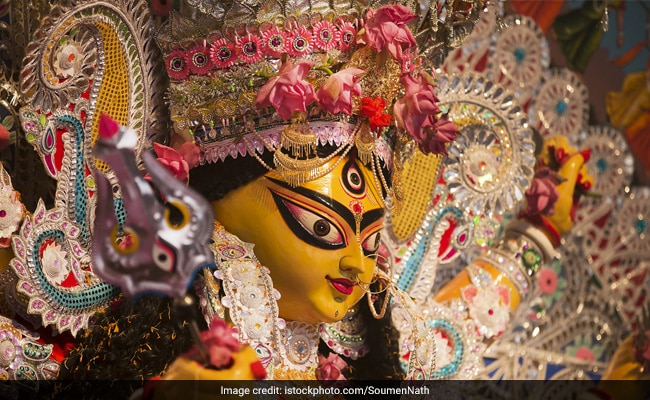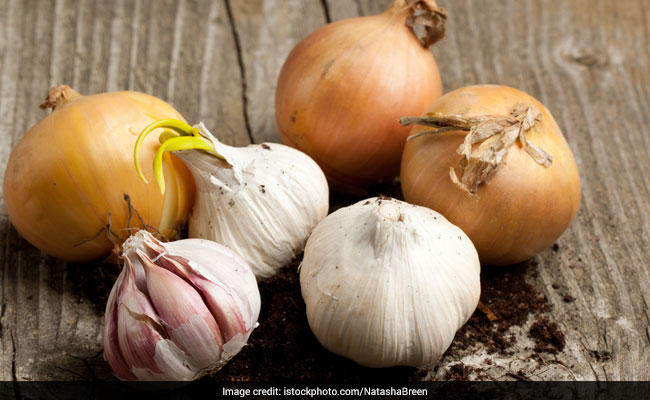
- Navratri is regarded as the most significant of all the four Navratris
- It is celebrated in the holy month of Ashwin
- Goddess Durga descends from the heavens above

Onion and garlic are avoided during navratri fasting
According to Hindu and ancient Ayurvedic understanding, foods can be divided into three categories, depending upon their nature and the response they trigger in the body after consumption. These three categories are as follows.
1.Raajasic food
2.Taamasic food
3.Saatvik food
While fasting for Navratri, people opt to go for saatvik food. Besides the religious aspect, there is a scientific reason for this too. Sharad Navratri falls around the months of October-November which usually mark the transition period from autumn to winter. During this time of seasonal change, our immunity tends to decline and therefore, it helps to switch to light saatvik food that does not burden your digestive system. It may also help in keeping away from toxins that may breed in greasy, heavy or unhealthy food, and thus, cleanses your body of all impurities.
The word Saatvik comes from the word, Sattva - which means the one that is pure, natural, vital, energetic, clean and conscious. Saatvik foods include most of your vrat ingredients like fresh fruits, cooling curd, pure rock salt, seasonal vegetables like pumpkin and lauki and subtle spices like cumin, coriander and black pepper. On the other hand, the words 'Rajas' and 'Tamas' refer to something that is destructive, resentful, unripe and weak. During this period of Navratri fasting when you are supposed to denounce worldly pleasures and adopt a simple and pure state of life to show your devotion, it is believed that Raajasic and Taamasic food may distract your mental focus.
Onion and garlic are categorized as Taamasic in nature, and have been linked to invoke carnal energies in the body. Onions are also said to produce heat in the body. Therefore, they are avoided during the Navratri fasts. Onion along with garlic is also known as 'Rajogini' that refers to substances that make one lose grip over their instincts, making it difficult to distinguish between your desires and priorities.
Ancient Vedic texts also regard salty, spicy, strong and pungent foods to take away one's focus from the devotion of the Lord. According to Vaishnav tradition, people are weary of eating anything that grows underground and therefore, Vaishnav-Hindus particularly refrain from eating onions. Along with onion and garlic, there are a few spices too that are avoided during Navratri fasting like turmeric (haldi), asafoetida (hing), mustard (sarson or rai), fenugreek seeds (methi dana) and garam masala. You can use Cumin (jeera), green chillies, black pepper and ajwain instead to flavour your food.
Happy Sharad Navratri 2017!
Track Latest News Live on NDTV.com and get news updates from India and around the world

